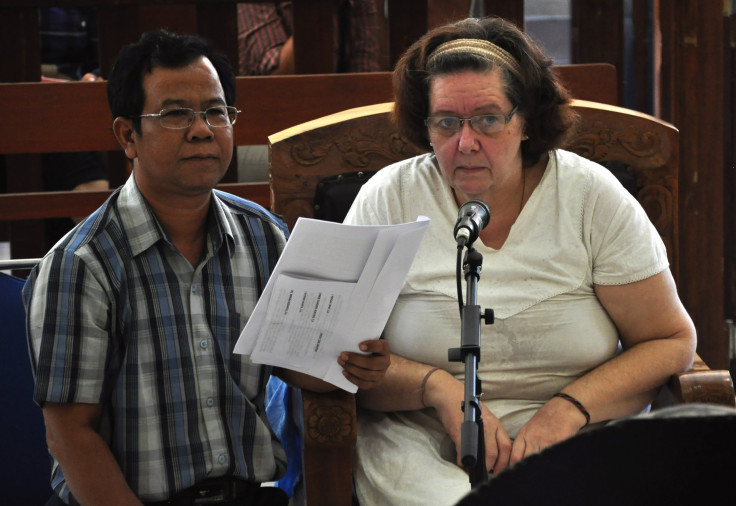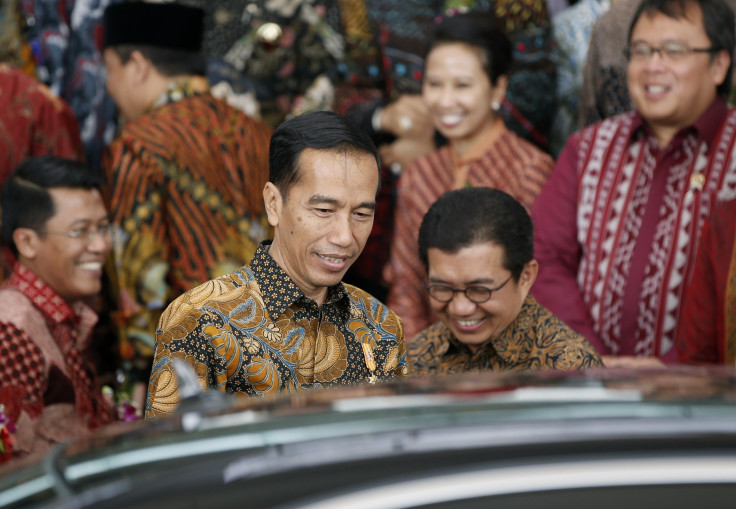Bali death row grandmother Lindsay Sandiford told execution date pushed back as Indonesia focuses on economic reforms

Lindsay Sandiford, a 59-year-old Brit sentenced to death by the Indonesian government in 2012 after being caught smuggling drugs worth £1.6m (AU$3.4m) into Bali, has been informed her sentence will be pushed back.
Sandiford was told her execution date had been set for September 21 earlier this month, but it is now expected January would be the earliest for her sentencing to be carried out.
Two rounds of executions have already taken place in Indonesia this year, including those of Bali Nine duo Andrew Chan and Myuran Sukumaran, who were shot by a firing squad in April.
The Gloucestershire ‘death row gran’, who knew Chan and Sukumaran and called their executions “senseless” and “brutal”, is now hoping to raise enough funds to lodge an appeal for a full retrial.
The British government has refused her legal aid, with a Foreign Office spokesperson telling the BBC that the government “receives numerous requests for help with legal bills and cannot provide funding because of the costs and complexities involved”.
Sandiford, who met her granddaughter for the first time over the weekend, maintains she only smuggled the drugs into Bali to help her son, who was “targeted” by drug lord “Julian Ponder and some very bad people”.
“I know this may be the first and last time I ever hold my granddaughter,” she told The Mail on Sunday after meeting two year old Ayla in Bali’s Kerobokan prison. “Ayla is the most important thing in my life and no one can take this away from me now.”
Indonesia focused on tackling economic reforms
Sandiford’s executions were put on hold by the Indonesian government so it can focus on the country’s economic outlook, the BBC reported.
Indonesian President Joko Widodo recently announced a range of reform policies, 89 regulations overhaul to be exact, targeted primarily at creating a healthy breeding ground for growth.
These deregulation measures – attempts to stabilise the exchange rate and inflation, diversify the economy towards manufacturing, simplify business procedures and create more legal certainty – have a common goal: boost confidence and enhance Indonesia’s competitiveness.
Specifically they include injecting 20.8 trillion rupiah into village funds for infrastructure projects, and heightened collaboration with regional states. The AFR also noted that foreigners would be able to open bank accounts in foreign currencies more easily, which is expected to boost domestic foreign currency suply.
Although growth in Indonesia is tracking at an acceptable rate, around 4.5 per cent, it has remained sluggish since President Widodo came into power. Coupled with the devaluation of the Yuan, erosion of domestic confidence and continued difficulty of doing business in the country, the government has increasingly been asked, ‘what’s next?’. The package is its response.

“I believe this first batch of economic reforms will strengthen the national industry, will develop the micro, small and medium sized businesses . . . and will improve trade among the regions,” Mr Widodo told the Financial Times.
Meanwhile, the Indonesian president has maintained that clemency will not be granted for more than 60 convicted drug offenders.
The exact date of Lindsay Sandiford's execution is yet to be confirmed.





















